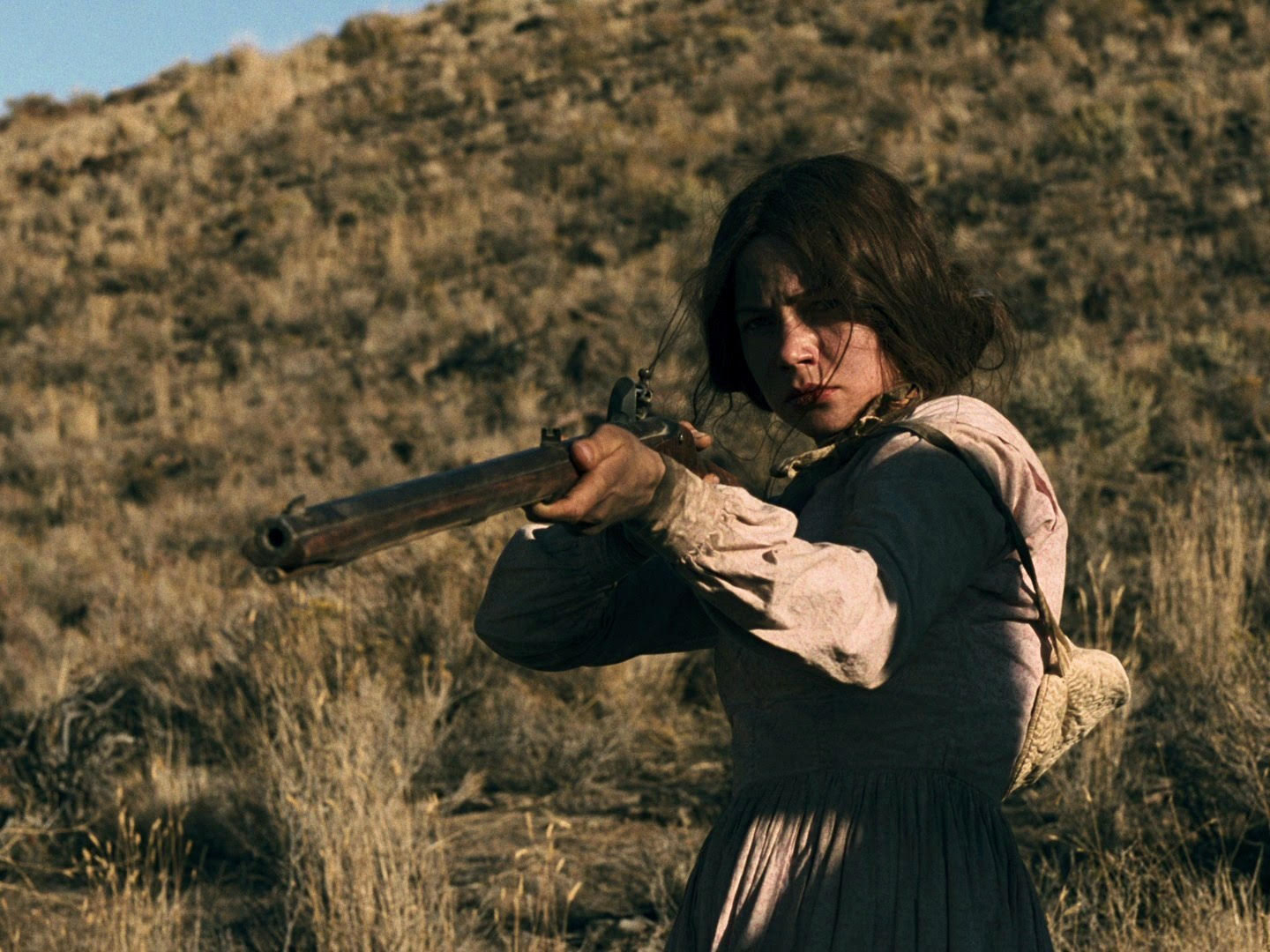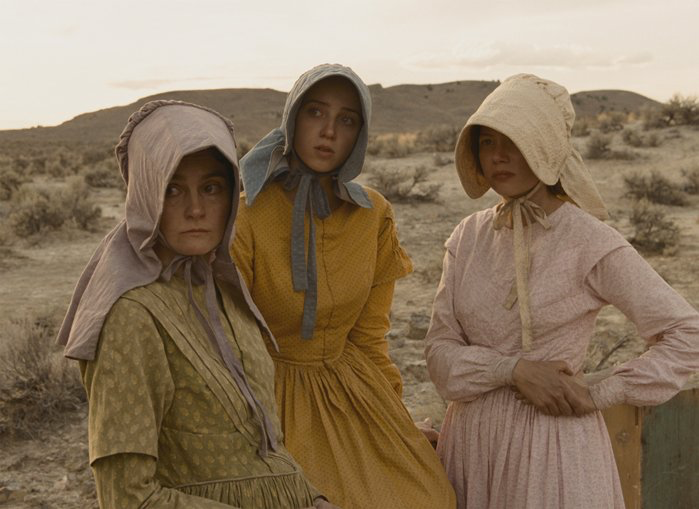The New Classics is a weekly series by Michael Cusumano, looking at great films of the 21st century through the lens of a single selected scene.

Scene: Emily takes charge
The lost pioneers in Kelly Reichardt’s Meek’s Cutoff travel with a bird in a cage dangling from the back of a covered wagon. It is a token of happier days, when nature was an ornament that decorated your home, not a force that drained the life from you with its punishing distances and barren terrain.
More than a sad joke, the little yellow parakeet also functions as a poignant symbol for the codes of society the pioneers carry with them into the wilderness, codes which become increasingly absurd in the context of their predicament. Lost, dying from thirst, and led by a guide who is either a charlatan or a mad man, the wagon train’s men still make sure to isolate themselves from their wives when discussing strategy.


The women huddle together on the edge of earshot, trying to pick up snippets of conversation, their bonnet brims extending out like horse-blinders, blocking their peripheral vision.
Art-house films like Meek’s Cutoff are commonly derided as “movies where nothing happens” but really, it’s the story of a life and death power struggle, just one that simmers under-the-surface until the film’s final scenes. The only one in the group with the strength to stand up to Meek before he dooms them all is Emily, one of the wives segregated out of the decision making.
'How bad does the situation have to get,' the film asks, 'before it will allow her to wrest away the leadership role?'
The answer, in case it wasn’t obvious, is very, very bad.
 Bruce Greenwood as Meek
Bruce Greenwood as Meek
We can easily imagine the earlier scene, probably in a saloon, where the blustering Stephen Meek (an unrecognizable Bruce Greenwood) impressed all the men folk with his tale of a shortcut over the Cascade Mountains. Now, hopelessly lost and with dwindling water, the men can’t quite accept the gravity of their mistake, even as Meek’s guidance amounts to little more than empty boasting. Only Emily (Michelle Williams) is unambiguous about their situation. She looks right through Meek and sees a total fraud.
Reichardt frequently plays the sound of Meek’s ramblings over a shot of Emily face, as she quietly seethes with anger that their survival depends on this transparent con-artist. At first, there is little point to challenging Meek, their situation equally bleak with or without him, but that dynamic changes when the group captures a member of the Cayuse tribe. Meek’s knee-jerk reaction is to execute him on the spot, spinning wild tales of native savagery and predicting that he will lead them into an ambush. But the rest of the men note that their prisoner is healthy and so must know a water source nearby.
The film boils down to a choice between two diametrically opposed men, Meek, arrogant and erratic, as disheveled as a street-corner prophet, or the stoic Cayuse, who is disengaged to the point that he barely seems to register the threat to his life, but who has an intelligence in his eyes which Emily intuits as trustworthy. She may not be certain about the Cayuse, but she knows all she needs to about Meek.

At first, the collective will of the men is enough to stay Meek’s hand, but when following the native’s path leads to a disastrous accident, Meek tries to enact a summary execution. It falls to Emily, rifle in hand, to stop Meek from putting a bullet in their best hope of survival. Emily’s husband Solomon (Will Patton) is an intriguing player in this confrontation. Amongst the other men he fell into the role of leader more or less by default, but in private we see how he relies on his wife’s council and strength. When Emily levels a rifle at Meek’s chest, all eyes turn to Solomon, who essentially endorses her leadership by refusing to intercede.
Viewers may find the film’s ambiguous ending frustrating, but I think it grows more satisfying when you realize Meek’s Cutoff is not about whether these particular settlers survive, but about how we choose our leaders, the qualities we should value vs. the qualities society tells us to value. In the film’s final shots, Emily and the Cayuse man observe each other through the branches of a tree, their obstructed views representing the expansive cultural divide across which they can never fully understand one another. When the Cayuse man marches on into the unknown, there is no guarantee he will lead them to salvation, but there in the end, on the precipice of death, it is Emily making the decision.

previously on The New Classics